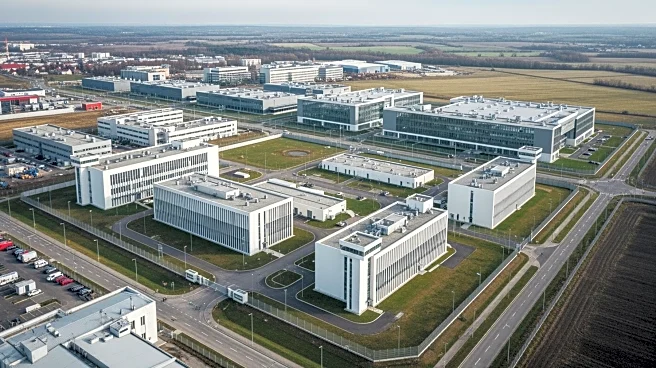Rapid Read • 8 min read
GameStop has recently closed its West Side location in Evansville, Indiana, as part of a broader trend of store closures across the United States. This closure follows a similar shutdown of a GameStop location in Henderson, Kentucky. Despite the closure, Evansville still hosts two active GameStop stores, with an additional location in Newburgh, ensuring that local customers continue to have access to video games, consoles, and collectibles. The closures are part of GameStop's strategic response to changing consumer habits, as more gamers opt for digital downloads and online shopping, reducing foot traffic in physical stores.
AD
The closure of GameStop stores reflects significant shifts in the retail landscape, particularly in the gaming industry. As digital downloads become more prevalent, traditional brick-and-mortar stores face challenges in maintaining profitability. This trend impacts not only GameStop but also other retailers reliant on physical sales. The shift towards online shopping could lead to further store closures, affecting local economies and employment. However, it also presents opportunities for businesses to innovate and adapt to digital trends, potentially reshaping the retail sector's future.
GameStop's strategy includes evaluating its store presence and potentially closing more locations through 2025. This could lead to a consolidation of resources into fewer, larger stores or a greater emphasis on online sales. The company may also explore new business models to enhance its digital offerings. Local communities might see changes in retail landscapes, with potential impacts on employment and commercial real estate. Stakeholders, including employees and local businesses, will need to adapt to these evolving market conditions.
The closure of physical stores like GameStop highlights broader cultural shifts in consumer behavior, with increasing reliance on digital platforms. This trend raises questions about the future of physical retail spaces and their role in communities. Additionally, it underscores the importance of digital literacy and access, as more consumers engage with online marketplaces. The evolution of retail may also influence urban planning and the development of commercial areas.
AD
More Stories You Might Enjoy











